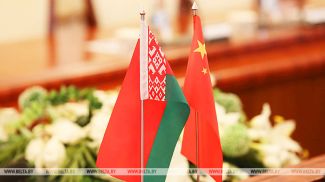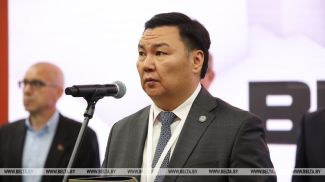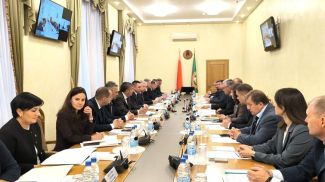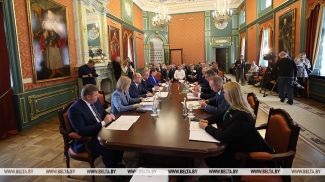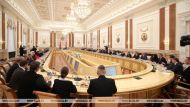
Photo courtesy of the Energy Ministry
MINSK, 3 May (BelTA) – Belarus’ power grid offers a high degree of reliability of power supply. Belarusian Deputy Energy Minister Denis Moroz made the statement at a youth forum of OAO Belenergoremnaladka, the Energy Ministry press service told BelTA.
Denis Moroz said that thanks to routine measures taken to improve the reliability of power supply the Belarusian power grid operates steadily and Belarusian energy industry professionals efficiently fix power outages even in bad weather. “The end of last year and the beginning of this year have vividly demonstrated it. Although the country’s territory was hit with serious cyclones, we didn’t have lengthy power outages: the disruptions were fixed literally within 24 hours,” he said.
The deputy energy minister reminded that an important decision in favor of expanding the fire breaks along overhead power lines had been made at the level of the head of state. “It has produced a tangible effect: the number of power outages in these areas in bad weather has decreased by several times,” he stated.
Apart from that, Denis Moroz pointed out that more and more efforts are being poured into modernizing the power grid infrastructure in Belarus. “We are now working out a separate program on increasing the reconstruction of power lines with the voltages of 35kV and more as well as power substations of various voltages,” he said.
The forum took place in the format of a dialogue platform in Minsk on 3 May. The role of young people in the development of the power engineering industry was discussed as well as opportunities for advanced training and career enhancement for young specialists, new areas of work and the spheres of activity where initiatives of young people enjoy the strongest demand. The forum also touched upon matters of importance for energy industry professionals such as making sure the power grid operates steadily, the operation of the Belarusian nuclear power plant, the main ways of power consumption, prospects of development of electric transport in the country, the modernization of power distribution grids, the management of radioactive waste, and the introduction of innovative technologies.




